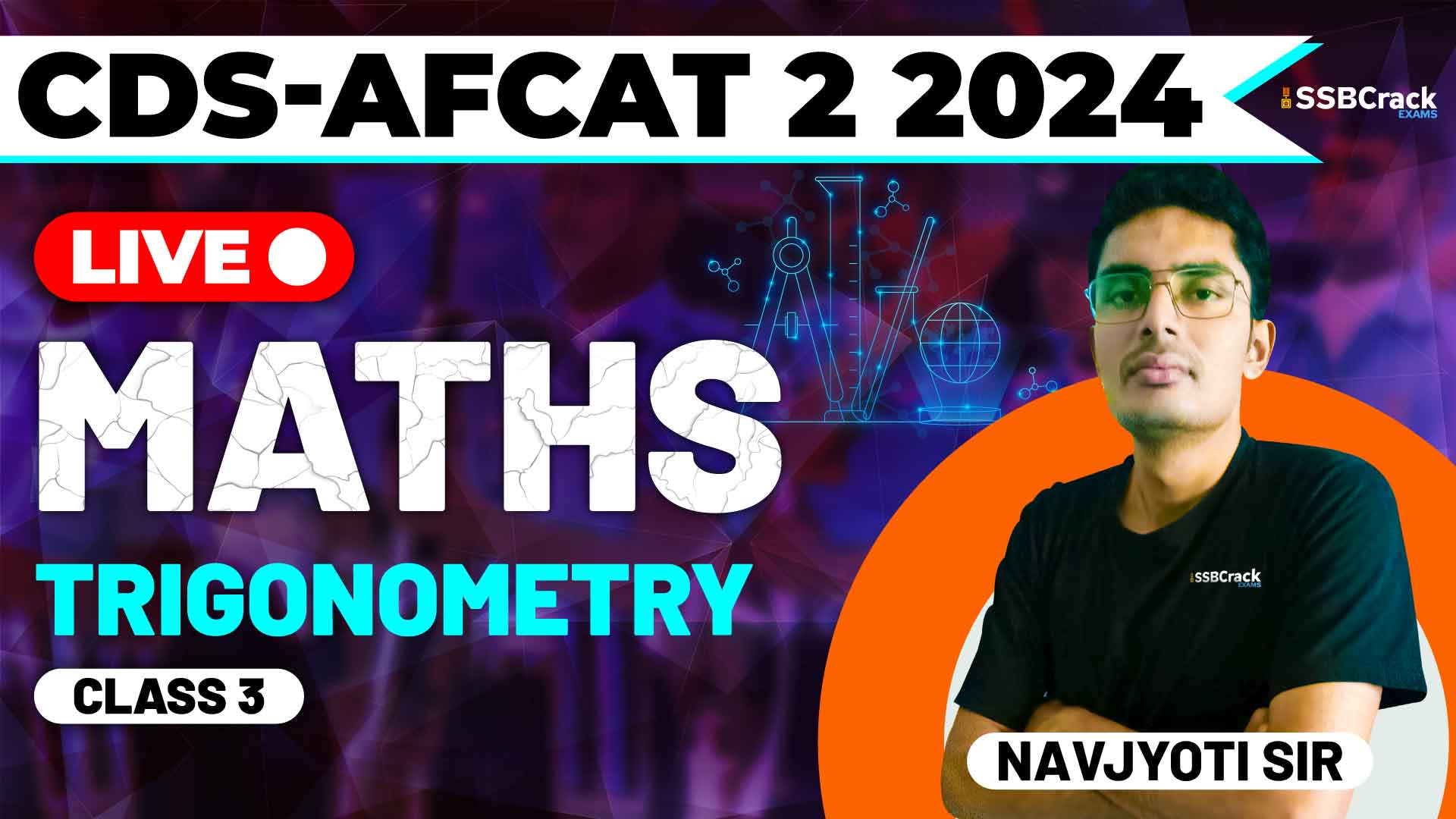Trigonometry is a critical component of the mathematics syllabus for competitive exams such as the Combined Defence Services (CDS) and Air Force Common Admission Test (AFCAT). A recent class dedicated to this topic emphasized the importance of understanding and mastering trigonometric concepts through extensive practice of multiple-choice questions (MCQs). This article will highlight the key takeaways from the class, focusing on the importance of trigonometry in these exams and the strategies discussed for solving related MCQs efficiently.
Importance of Trigonometry in Competitive Exams
Trigonometry plays a pivotal role in the CDS and AFCAT exams, contributing significantly to the mathematics section. Understanding trigonometric ratios, identities, and applications is essential for solving a wide range of problems. These concepts are not only important for academic success but also for various practical applications in fields such as engineering, physics, and navigation.
Key Trigonometric Concepts Covered
The class focused on several fundamental aspects of trigonometry, ensuring a comprehensive understanding of the subject. The main areas discussed included:
- Trigonometric Ratios
- Reciprocal Ratios
- Trigonometric Identities
- Complementary Angles
Trigonometric Ratios
Trigonometric ratios are the foundation of trigonometry. These ratios—sine, cosine, tangent, cotangent, secant, and cosecant—relate the angles of a triangle to the lengths of its sides. Understanding these ratios is crucial for solving various problems in trigonometry.
Example MCQ:
Question: If the sine of an angle is 0.5, what is the angle?
Answer: The angle is 30 degrees.
Reciprocal Ratios
Reciprocal ratios are the inverse of the primary trigonometric ratios. These include cotangent (cot), secant (sec), and cosecant (csc). Mastering these ratios is essential for solving problems where the primary ratios are not directly applicable.
Example MCQ:
Question: What is the secant of 45 degrees?
Answer: The secant of 45 degrees is √2.
Trigonometric Identities
Trigonometric identities are equations involving trigonometric functions that are true for all values of the variables involved. These identities are vital tools for simplifying complex trigonometric expressions and solving equations.
Example MCQ:
Question: Which of the following is a trigonometric identity?
- A) sin²θ + cos²θ = 1
- B) tan²θ + 1 = sec²θ
- C) 1 + cot²θ = cosec²θ
Answer: All the above options (A, B, and C) are trigonometric identities.
Complementary Angles
Complementary angles are two angles that add up to 90 degrees. Understanding how trigonometric functions of complementary angles relate to each other is crucial for solving many trigonometric problems.
Example MCQ:
Question: If θ is an angle, what is the complementary angle of 30 degrees?
Answer: The complementary angle of 30 degrees is 60 degrees.
Strategies for Solving Trigonometric MCQs
The class emphasized various strategies for effectively tackling trigonometric MCQs, which are crucial for performing well in competitive exams.
- Understanding the Question: Carefully read and understand what the question is asking. Identify the trigonometric concepts or identities that apply.
- Simplifying the Problem: Use trigonometric identities to simplify the problem wherever possible. This often makes the calculations easier and quicker.
- Drawing Diagrams: Visual aids can help in understanding the problem better, especially for questions involving angles and triangles.
- Memorizing Key Formulas: Ensure that you have all the essential trigonometric formulas and identities memorized. This will save time during the exam.
- Regular Practice: Consistent practice with a variety of MCQs helps reinforce concepts and improves speed and accuracy.
Importance of Practice
The class underscored the importance of practicing a wide range of MCQs to master trigonometric concepts. Regular practice helps in familiarizing with different types of questions and improves problem-solving speed and accuracy. Additionally, reviewing and analyzing mistakes made during practice can provide valuable insights and help avoid similar errors in the actual exam.
Conclusion
Mastering trigonometry is essential for success in the CDS and AFCAT exams. The recent class provided a thorough understanding of key trigonometric concepts such as ratios, identities, and complementary angles, along with effective strategies for solving related MCQs. By focusing on these areas and practicing regularly, students can significantly improve their performance in the mathematics section of these competitive exams.







